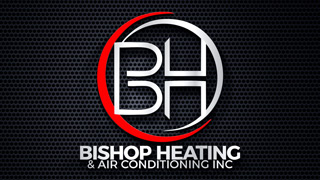
To avoid rising energy costs and work toward a more sustainable life, many homeowners are trying new methods to maintain comfort levels while using less energy. As part of the Inflation Reduction Act, federal tax credits are available for energy-efficient home upgrades, especially HVAC systems like air conditioners. These credits offer significant savings, provided that homeowners use qualifying equipment and submit the right paperwork.
If you’re concerned the application process might be tedious, maybe we can help! Bishop Heating & Air Conditioning hopes this guide will give you everything you need to earn these HVAC tax credits in 2024. Here’s how.
Understanding the HVAC Tax Credits
These valuable tax credits for upgrading your home to be more energy-efficient are just one intended use of the recent Inflation Reduction Act. With the higher cost of energy making an impact, helping more homeowners upgrade their equipment is always beneficial. The primary goal of these credits is to mitigate costs associated with installation and renovation projects. Two of note are the Energy Efficiency Home Improvement Credit and the Residential Clean Energy Credit.
But remember, in order to claim your credits, you’ll need a completed IRS Form 5695. Additionally, this form is submitted within the same tax year the upgrades were installed, not bought.
Maximizing Savings with the Energy Efficiency Home Improvement Credit
Through 2032, the Energy Efficiency Home Improvement credit empowers homeowners by offsetting up to $3,200 each year for energy-efficient home upgrades. This amounts to 30% of the total project’s cost. It's important to note in order to get back the maximum amount, it means making severel investments. For example, you’ll receive up to $2,000 for installing a higher efficiency heat pump. This can be combined with the remaining $1,200 in credits for other eligible upgrades made within the tax year.
While new heat pump installation projects are a popular option for the tax credit, other HVAC upgrades like efficient furnaces and air conditioners also qualify. You should confirm that your choice’s energy efficiency rating is sufficient to qualify.
Exploring the Residential Clean Energy Credit
The Residential Clean Energy Credit provides 30% savings on a variety of residential clean energy efficiency projects. Eligibility is restricted to homeowners seeking to update existing or newly constructed homes. While the Home Improvement Credit works primarily with utilities and HVAC systems, this credit targets renewable energy sources like solar and wind energy.
Some key details of this tax credit include requiring the installation project to be finished between 2022 and 2032. But at the same time, homeowners can keep the excess credit to reduce future taxes. This is a great way to make things a little easier when investing in renewables.
Additional Qualifications for Energy Tax Credits
Because HVAC systems are one of the biggest portions of your monthly energy costs, these tax credits offer more access to the most energy-efficient options. But home energy efficiency can be improved in lots of other ways. Apart from the previously listed HVAC upgrades, {you could also choose|other eligible items include|you also have access to:
- Heat pump water heaters
- Modern electrical panel improvements
- Upgraded electrical wiring
- Insulation, air sealing and ventilation enhancements
- Energy-efficient cooking appliances like stoves, cooktops, and ovens
- Heat pump clothes dryers
- Water boilers
Just like with installing one or more HVAC systems, you’ll need to verify that your chosen products meet the required energy efficiency ratings.
Maximizing Your 2024 HVAC Tax Credits: Top 3 Tips
While any of these upgrades can enhance your home's energy performance, some planning ahead will ensure they offer the most long-term benefits. Maximize your HVAC tax credits with these reminders:
- Conduct a home energy audit to identify impactful upgrades. Rely on professional HVAC assessments for crucial advice.
- Enhance your home's envelope by addressing inefficient windows and doors.
- Explore potential rebates from utility companies for clean energy upgrades. Renewable sources like solar, wind, and geothermal contribute to community power grid sustainability.
- Remember to consider financing plans offered by service providers.
Secure Your 2024 HVAC Credits with Help from Bishop Heating & Air Conditioning
Partner with local HVAC professionals like Bishop Heating & Air Conditioning for help with home energy audits and new installation projects. Our experienced installers know how to provide all you need for a more energy-efficient home.
